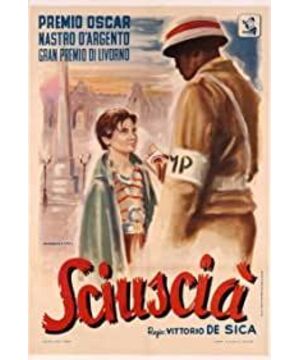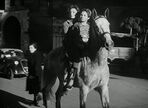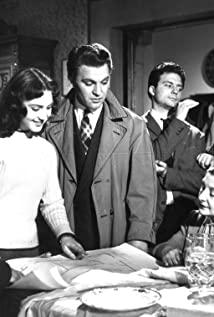Desika focused the story on the child after the war. In a life full of blemishes and wastes, the pressure of survival allows evil to breed, and children have become victims of the times. The picture of Paschlit and Gusaipai riding a white horse they bought on the street is in sharp contrast and contrast with the picture of being imprisoned later. They are wandering on the streets in order to survive. They are shoe-shining boys and black market traders. They are walking in the gray area. They are children, but they have to mature prematurely.
Because they were used by Gusai’s elder brothers and his accomplices, they sold the blankets in the black market to an old lady, which eventually resulted in them being imprisoned in a juvenile prison. The dirty, crowded, dilapidated, and chaotic living environment in the prison keeps children alive like cattle, eating hard bread and suffering from various diseases. Prisons are places abandoned by God, and the juvenile delinquents in prison are people abandoned by God. Paschlet was deceived by the illusion of physical punishment created by the warden of Jusaipa, and confessed to Jusaipa's brother. His original intention was to prevent the Jusai faction from being physically punished and to love his friends, but the result was to become an informer, a traitor, misunderstood by the Jusai faction, turned into an enemy, and even formed by the Jusai faction and his inmates. The gang secretly hid the dagger under his pillow, blamed him, slandered him, and even beat him up. The rupture of the relationship brought the true face of the black hand behind the scenes, but the appearance of the lawyer and the trial paragraph completely extinguished all possible lights. The lawyer asked Gusaipai to shift all responsibilities to Paschlet, in order to eliminate his brother's charge. This is not only the lawyer's suggestion, but also the family's thoughts. And Pasclete's helpless look in court without his family is distressing. He has no relatives, no private lawyers, and the perfunctory attitude of public lawyers in court has put him in a completely isolated and helpless situation. In the end, Gusaipai was sentenced to 1 year, Paschlet was sentenced to 2 years, and his brother was acquitted with the help of everyone.
In the end, the Jusaipai and the inmates successfully escaped from prison together, and the angry Paschlit found the Jusaipai who had escaped on horseback and beat Jusaipai crazily with a belt, which eventually led to the death of the Jusaipai falling from the bridge. Regained his sanity, Pascritte cried bitterly while holding the dead body of Gusaipai, and the white horse that symbolized freedom slowly left, leaving cries and endless nights behind.
View more about Shoeshine reviews








